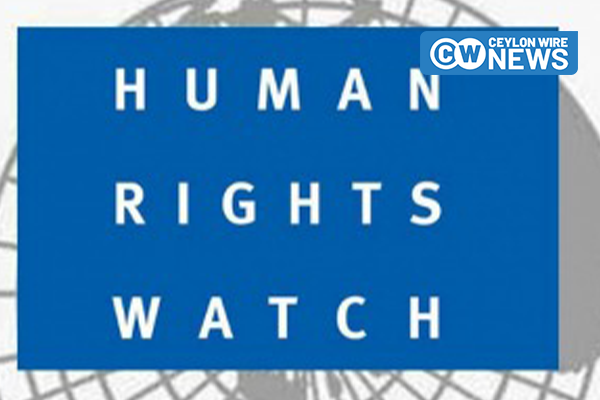Sri Lankan authorities continue to use the controversial Prevention of Terrorism Act (PTA) to target perceived opponents and minority communities without credible evidence, despite repeated pledges to end the practice, claims Human Rights Watch (HRW).
In a statement issued on Wednesday (17), the international watchdog noted that some victims have suffered years of arbitrary detention and torture, while others face persecution even after charges are dropped.
“The law, widely known as the PTA, includes provisions allowing for extended administrative detention, limited judicial oversight, and inadequate protections against torture. In a 2022 speech to the United Nations Human Rights Council, the then foreign minister pledged a moratorium on its use, but under President Ranil Wickremesinghe, detentions under the PTA have continued. The law has a chilling effect, as evidenced by the International Monetary Fund’s finding in September 2023 that the ‘broad application of counter-terrorism rules’ restricts civil society scrutiny of official corruption,” the statement highlighted.
HRW also mentioned that despite government promises to repeal the PTA since 2015, draft legislation to replace it, known as the Anti-Terrorism Bill (ATB), was published in March 2023. While the new bill includes some improvements, it retains provisions that could facilitate abuse.
Following the 2019 Easter Sunday attacks, when Islamist suicide bombers targeted churches and hotels, killing over 260 people, authorities detained at least 125 Muslims in the eastern town of Kattankudy under the PTA. “Little or no evidence was produced against most of them, a lawyer familiar with the situation told Human Rights Watch. Most spent between one and three years in detention and were then either discharged altogether or released on bail. Twenty-four are facing trial in a proceeding that is expected to continue for years,” the statement added.
HRW further stressed that like the PTA, the draft law appears designed to give the president, police, and military broad powers to detain people without evidence, criminalize vaguely defined forms of speech, and arbitrarily ban gatherings and organizations without meaningful judicial oversight.
“It would expand the definition of terrorism to include crimes such as property damage, and restrict rights to freedom of assembly and speech. It would give the police and military sweeping powers to stop, question, search, and arrest anyone without a warrant, and allow the attorney general to impose ‘voluntary’ custodial ‘rehabilitation’ on a person who has not been convicted of any crime,” the statement mentioned.
Human Rights Watch called on the Sri Lankan government to impose a full moratorium on the PTA, work to repeal it, and draft rights-respecting counterterrorism legislation in consultation with experts and civil society. The organization also urged foreign partners, including the United States, EU, and UK, to insist that Sri Lanka abides by its commitments to repeal the law. Additionally, it emphasized that the UN Human Rights Council should renew the mandates of resolution 46/1 for reporting and investigating human rights violations in Sri Lanka.








